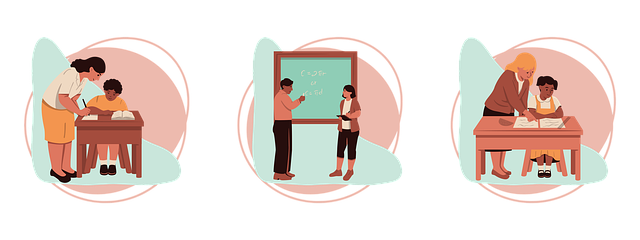Grandparents in Oregon seeking legal support for custody, visitation, or guardianship face complex procedures but have access to numerous resources. With pro bono services, accessible tools, and local support groups, they can navigate the system effectively while prioritizing their grandchildren's well-being. Building this network ensures grandparents have the knowledge and assistance needed to protect their rights in Oregon's unique legal landscape.
Grandparents in Oregon face unique challenges when it comes to legal rights and support. This article explores essential strategies and resources for navigating the complex legal landscape, ensuring grandparent’s rights are protected. We delve into understanding specific laws that govern grandparent visitation and custody, providing an insightful guide on available legal processes. Additionally, we emphasize the importance of building a robust support network tailored to Oregon’s unique needs, empowering grandparents to access the assistance they require.
- Understanding Grandparent's Rights in Oregon
- Navigating Legal Processes and Available Resources
- Building a Support Network for Grandparents in Oregon
Understanding Grandparent's Rights in Oregon

In Oregon, grandparents have specific rights and entitlements regarding their involvement in their grandchildren’s lives. Understanding these rights is crucial when navigating legal support for family matters. The state recognizes that grandparents can play a vital role in a child’s upbringing and well-being, especially in situations where parents may be unable or unwilling to care for them.
Oregon law allows grandparents to seek legal custody or visitation rights if they can demonstrate a substantial change in circumstances and that it’s in the best interest of the grandchild. This process often involves court proceedings, where a judge will assess the situation and make decisions based on the child’s welfare. Grandparents may require legal support to understand their options, prepare necessary documents, and advocate for their rights during these proceedings, ensuring they can effectively navigate the legal system in Oregon.
Navigating Legal Processes and Available Resources

Navigating the legal system can be a daunting task, especially for grandparents who may not have prior experience with such processes. In Oregon, there are numerous resources and support systems in place to assist families during this challenging time. The first step is understanding the available options and connecting with legal professionals who specialize in family law. Many organizations offer pro bono or low-cost legal services tailored to grandparent’s needs, ensuring they have access to knowledgeable attorneys.
These services can guide grandparents through adoption procedures, custody battles, or providing resources for establishing legal guardianship. Oregon’s judicial system also provides various tools and forms to simplify the process, making it more accessible. With the right support, grandparents can confidently navigate these legal matters while prioritizing the best interests of their grandchildren.
Building a Support Network for Grandparents in Oregon

In Oregon, building a strong support network is essential for grandparents navigating the complexities of legal support. Connecting with like-minded individuals and organizations can provide invaluable assistance and guidance during challenging family situations. Local support groups offer a safe space to share experiences, gain insights, and access resources tailored to Oregon’s unique legal landscape. These networks often include attorneys specializing in family law, social workers, and other professionals who are experienced in assisting grandparents with custody arrangements, visitation rights, and financial aid.
Additionally, leveraging online resources and statewide associations can significantly enhance a grandparent’s ability to navigate legal support in Oregon. Many organizations offer comprehensive guides, workshops, and legal clinics specifically designed for grandparents. These initiatives ensure that families have access to the necessary tools and knowledge to protect their rights and make informed decisions regarding their legal options.














